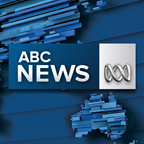
Updated
 Photo:
Israel Folau is in the midst of discussions with Rugby Australia over his sacking. (AAP: Paul Miller)
Photo:
Israel Folau is in the midst of discussions with Rugby Australia over his sacking. (AAP: Paul Miller)
Israel Folau's clash with Rugby Australia (RA) over his fundamentalist religious social media posts has prompted nine prominent Christians to send letters about the protection of religious freedom to Scott Morrison and Bill Shorten.
Key points:
- The letters have been signed by Presbyterian, Baptist, Seventh-Day Adventist and Apostolic leaders, among others
- It calls for clarification from the Coalition and Labor on their positions on religious freedoms
- One of the signatories say Israel Folau's case sets a dangerous precedent
Folau was stood down by RA immediately after an April 10 post on Instagram saying "drunks, homosexuals, adulterers, liars, fornicators, thieves, atheists [and] idolators" were going to hell.
Folau is fighting the breach notice that recommended his four-year, $4 million contract be terminated.
At a three-day hearing last week he was found guilty of a high-level breach of the players' code of conduct, but a decision had not yet been made on how he will be punished.
Folau's name is not mentioned specifically in the letter signed by Australian leaders from Presbyterian, Baptist, Seventh-Day Adventist and Apostolic churches, as well as a number of religious school leaders.
 Photo:
The image Folau posted on Instagram was accompanied by direct scripture quotes. (Supplied: @izzyfolau)
Photo:
The image Folau posted on Instagram was accompanied by direct scripture quotes. (Supplied: @izzyfolau)
The letters were worded differently for the Prime Minister and the Opposition Leader, but both flagged a range of issues, with protection of religious belief and free speech at the forefront.
"In recent years the protections to be accorded to religious freedom, and the related freedoms of conscience, speech and association, have come under increasing focus within Australia," both letters begin.
The letter to Mr Morrison commended his Government for committing to implement recommendations from former Liberal MP Philip Ruddock's review into religious freedoms, which handed down its report in May last year.
"We write to invite you to provide clarification on a range of key issues that are important to the preservation of these freedoms in our country," the letter read.
One of the signatories, Reverend Dr Hedley Fihaki, a Uniting Church minister and the national chair of the Assembly of Confessing Congregations, said he was worried the Wallaby's case could set "a dangerous precedent".
"Scripture is the book the whole church is based on, so if we are not free to teach from that, not just in the private but particularly in the public domain, it is a dangerous precedent," Dr Fihaki told the ABC.
"From the Bible, from the holy scriptures, that's the Old and New Testament.
"That book is the basis for what we do, the teaching and the preaching, that's what we do every week."
Folau shouldn't lose his livelihood: Shorten
The letter to Mr Shorten asked for further clarification on the Labor Party's national platform, which says that the party "supports the appropriate protection of the religious freedom of all people".
"This commitment leaves wide scope for interpretation, and much will turn on what is considered 'appropriate' in the eyes of a legislator," the letter read.
"We are concerned that these commitments lack sufficient particularity on key issues that are important to the preservation of the freedoms of religion, conscience, speech and association in our country."
The issue was raised in Wednesday night's leaders debate and Mr Shorten said his position had not changed since then, adding while he does not "share Mr Folau's view that you are going to hell if you're gay" he also does not think Folau should "automatically lose his whole living".
"We have two tough issues the sharp edges of which bump up against each other," he said.
"I get it, people should have the right to practice their religion … but I also think that we've got to be careful that we don't use freedom of religion and freedom of speech to cause unnecessary hurt and pain to other members of the community.
"What I've said to churches is a Shorten Labor Government will maintain religious education and freedom of religion and we believe in freedom of speech, but we also believe that we can't be a nation who allows one group to inflict hurt on another group.
"I won't be the most right-wing religious ideologue and I won't be the most left-wing person on this issue. I don't put my religion on my sleeve. I just think in this country we've got to learn to tolerate and live and let live with each other a little more than we do right now."
Topics: rugby-union, sport, religious-leaders, religion-and-beliefs, australia
First posted






 Add Category
Add Category